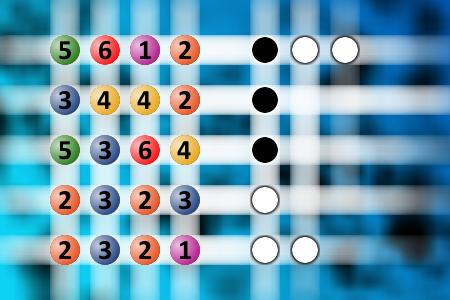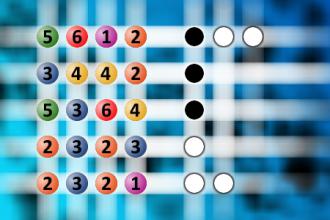What a winning combination?
The computer chose a secret code (sequence of 4 digits from 1 to 6). Your goal is to find that code. Black circles indicate the number of hits on the right spot. White circles indicate the number of hits on the wrong spot.Correct answers: 24
The first user who solved this task is Nasrin 24 T.
#brainteasers #mastermind

When you focus on your problems
When you focus on your problems, you will have more problems. When you focus on possibilities, you will have more opportunities.

